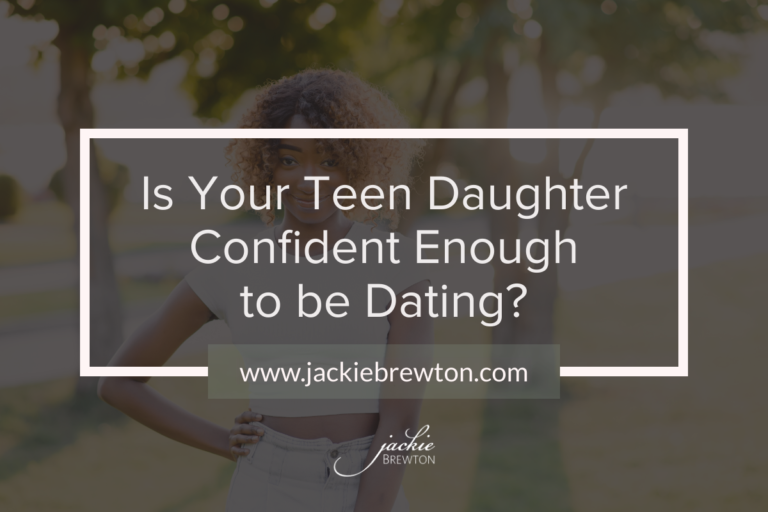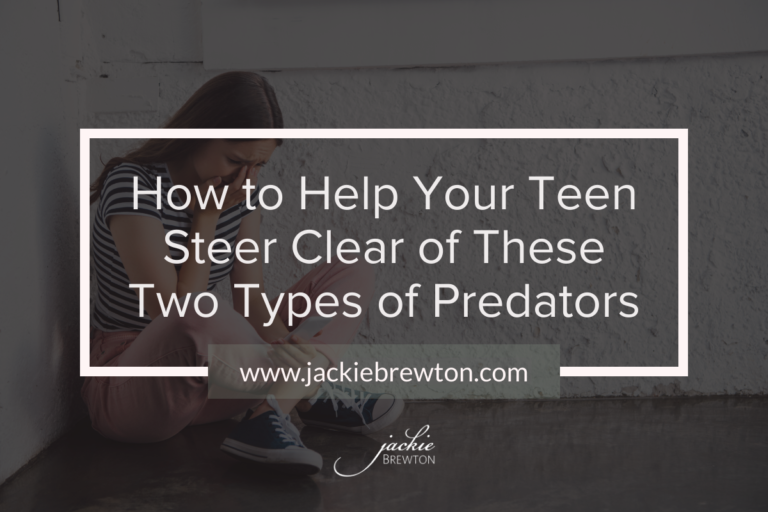Why Cervical Cancer Awareness Month Matters to Your Teen Daughter
Of all the STDs that I discuss with teens and parents, HPV is the STD they know the least about.
I want to make sure that's not the case for you and your daughter.
Not to mention, January is Cervical Cancer Awareness Month and the two go hand in hand.
How so?
According to the CDC, the Human Papillomavirus (HPV) causes most cervical cancers.
And Cervical Cancer is the most common HPV-associated cancer among women.
But please don't think this is an issue that only adult women have to worry about.
The fact is HPV and cervical cancer can impact your daughter too.
What you don't know could hurt her!
The truth is HPV infects BOTH women and men (girls and guys), and often goes away on its own.
But don't let that fool you.
There are several things that teens and their parents need to know about HPV:
- It’s spread by genital skin-to-skin contact so condoms are not 100% effective against it.
- Guys can’t get tested for the strain of HPV that causes cervical cancer.
- More women in the U.S. die from cervical cancer every year than die from AIDS. So HIV/AIDs is not the only deadly STD.
Students are always shocked by the above facts.
Why?
Even if they attempt to be "responsible" by using a condom, it might not be enough.
And no matter how "clean" a guy claims he is, there's no way even he can know if he has HPV.
This is the kind of information your daughter needs to know.
And you are her best teacher!
Education Matters!
We've talked about the problem of Cervical Cancer caused by HPV.
Now let's talk about the solution.
Prevention is key! And it can only happen through education.
1. Educate yourself
Like many parents, you may not have been familiar with HPV because it may not have been an STD you had to worry about back when you were a teen.
Now that it is a potential risk to your daughter, it's important that you learn all you can about it.
For instance, according to the CDC "there are 100+ strains of HPV. About 40 of them affect the genitals."
There's also a vaccine for HPV. (You've probably seen the commercials).
In 2006, Merck introduced its One Less Campaign at the same time they introduced their Gardasil vaccine.
This campaign highlighted how the vaccine protects against the transmission of HPV and potentially, cervical cancer.
The CDC website states:
The HPV vaccine covers 4 of the 40+ strains of HPV that affect the genitals. 2 of those 4 strains cause 90% of all genital warts and 2 cause 70% of all cervical cancer.
But here's the thing: Like with many vaccines targeted for kids (11 and 12-year-olds in this case), Gardasil is controversial.
This is not an endorsement for the vaccine. Only you can decide what's best for your daughter.
So, arm yourself with the latest information.
As a Sex-Ed teacher, I have to do it all the time.
My first stop? The CDC.
I encourage you to go here to visit their site to begin your own research.
But don't stop there.
A basic internet search will uncover a host of articles on HPV and cervical cancer.
And the more you know, the more help you can be to your daughter.
2. Educate your daughter
Once you've armed yourself with information, it's time to share it with your daughter.
How?
You don't want to do an information dump.
That will likely go in one ear and out of the other.
This is also not the time to do a "Scared Straight" intervention.
I've learned the "fear factor" approach doesn't work either.
You know what does?
No matter how many STD statistics I may recite in the classroom, what the students remember are the letters I share from real teens who are living it.
Letters like this one:
I would really just like to thank you for doing what you’re doing. I’ve only ever been with one guy, who’s my boyfriend, but we stopped being sexually active once we found out he gave me HPV, the cancerous kind. I felt like I had to have sex with him to keep him around. I know it sounds pathetic, but I was just so young and naive, and he took advantage of that. Having this class taught me that there’s so much more to it all, and if I had just had this class earlier, maybe I wouldn’t be in this position. I wish I could go back and set my standards higher and save myself all this hurt because I now have come to the decision I need to end things, and I have to tell the next guy I’m with (which will be the guy I marry), that I’ve already given myself to someone else and have HPV. And that’s something I wish I didn’t have to ever do. Sex is not worth any of it. So, keep doing what you’re doing because it’s absolutely magnificent.
Putting a human face on STDs is so much more powerful than reciting a statistic.
Teens are able to see themselves or someone they know in these real-life stories.
Perhaps you have your own real-life story to share with your daughter.
But don't worry if you don't. Feel free to use mine!
Have your daughter read the letter above and the entire post. Then talk about it.
And if your daughter has my book, 7 Secrets Guys Will Never Tell You, check out the case study I include on page 10.
I recount the day a young lady brought her boyfriend to talk to me after class where she learned that guys couldn't be tested for HPV.
She shared that tidbit with her boyfriend and let's just say the discussion the three of us had was eye-opening.
Especially for the young lady.
She didn't like what she heard, but she needed to hear it.
I'm so glad I was able to help educate her.
And you can do the same for your daughter!
Here's the thing Mom: Your daughter doesn't want to hear about HPV or cervical cancer any more than you want to talk to her about it.
But she needs to know that cervical cancer is not just an "adult woman's" disease.
Having sex puts your daughter at risk of contracting HPV.
Like the young lady in the letter above, cervical cancer could very well become her teenage reality.
That's why educating yourself and your daughter is so important.
The good news is you don't have to be a Sex-Ed teacher to do it!
The information you need is literally at your fingertips.
P.S. Don't forget to visit the CDC website for more info on HPV and cervical cancer here.




